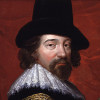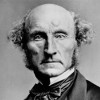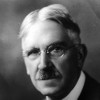“ When others are not doing what we would like them to or are threatening disobedience, we are most conscious of the need of controlling them and of the influences by which they are controlled. ”
John Dewey, Democracy and Education (1916). copy citation
| Author | John Dewey |
|---|---|
| Source | Democracy and Education |
| Topic | influence disobedience |
| Date | 1916 |
| Language | English |
| Reference | |
| Note | |
| Weblink | http://www.gutenberg.org/files/852/852-h/852-h.htm |
Context
“when others are doing things they do not wish them to do. But the more permanent and influential modes of control are those which operate from moment to moment continuously without such deliberate intention on our part.
1. When others are not doing what we would like them to or are threatening disobedience, we are most conscious of the need of controlling them and of the influences by which they are controlled. In such cases, our control becomes most direct, and at this point we are most likely to make the mistakes just spoken of. We are even likely to take the influence of superior force for control, forgetting that while we may lead a horse to water we cannot make him drink;”
source



